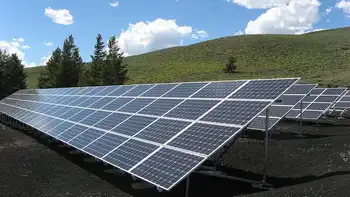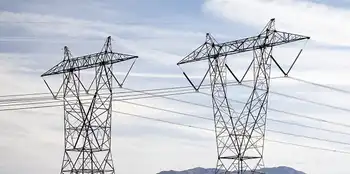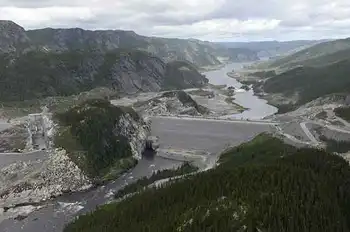AI Load Forecasting for Utilities leverages machine learning, smart meters, and predictive analytics to balance energy demand during COVID-19 disruptions, optimize grid reliability, support demand response, and stabilize rates for residential and commercial customers.
Key Points
AI predicts utility demand with ML and smart meters to improve reliability and reduce costs.
✅ Adapts to rapid demand shifts with accurate short term forecasts
✅ Optimizes demand response and distributed energy resources
✅ Reduces outages risk while lowering procurement and operating costs
The spread of the novel coronavirus that causes COVID-19 has prompted state and local governments around the U.S. to institute shelter-in-place orders and business closures. As millions suddenly find themselves confined to their homes, the shift has strained not only internet service providers, streaming platforms, and online retailers, but the utilities supplying power to the nation’s electrical grid, which face longer, more frequent outages as well.
U.S. electricity use on March 27, 2020 was 3% lower than it was on March 27, 2019, a loss of about three years of sales growth. Peter Fox-Penner, director of the Boston University Institute for Sustainable Energy, asserted in a recent op-ed that utility revenues will suffer because providers are halting shutoffs and deferring rate increases. Moreover, according to research firm Wood Mackenzie, the rise in household electricity demand won’t offset reduced business electricity demand, mainly because residential demand makes up just 40% of the total demand across North America.
Some utilities are employing AI and machine learning for the energy transition to address the windfalls and fluctuations in energy usage resulting from COVID-19. Precise load forecasting could ensure that operations aren’t interrupted in the coming months, thereby preventing blackouts and brownouts. And they might also bolster the efficiency of utilities’ internal processes, leading to reduced prices and improved service long after the pandemic ends.
Innowatts
Innowatts, a startup developing an automated toolkit for energy monitoring and management, counts several major U.S. utility companies among its customers, including Portland General Electric, Gexa Energy, Avangrid, Arizona Public Service Electric, WGL, and Mega Energy. Its eUtility platform ingests data from over 34 million smart energy meters across 21 million customers in more than 13 regional energy markets, while its machine learning algorithms analyze the data to forecast short- and long-term loads, variances, weather sensitivity, and more.
Beyond these table-stakes predictions, Innowatts helps evaluate the effects of different rate configurations by mapping utilities’ rate structures against disaggregated cost models. It also produces cost curves for each customer that reveal the margin impacts on the wider business, and it validates the yield of products and cost of customer acquisition with models that learn the relationships between marketing efforts and customer behaviors (like real-time load).
Innowwatts told VentureBeat that it observed “dramatic” shifts in energy usage between the first and fourth weeks of March. In the Northeast, “non-essential” retailers like salons, clothing shops, and dry cleaners were using only 35% as much energy toward the end of the month (after shelter-in-place orders were enacted) versus the beginning of the month, while restaurants (excepting pizza chains) were using only 28%. In Texas, conversely, storage facilities were using 142% as much energy in the fourth week compared with the first.
Innowatts says that throughout these usage surges and declines, its clients took advantage of AI-based load forecasting to learn from short-term shocks and make timely adjustments. Within three days of shelter-in-place orders, the company said, its forecasting models were able to learn new consumption patterns and produce accurate forecasts, accounting for real-time changes.
Innowatts CEO Sid Sachdeva believes that if utility companies had not leveraged machine learning models, demand forecasts in mid-March would have seen variances of 10-20%, significantly impacting operations.
“During these turbulent times, AI-based load forecasting gives energy providers the ability to … develop informed, data-driven strategies for future success,” Sachdeva told VentureBeat. “With utilities and energy retailers seeing a once-in-a-lifetime 30%-plus drop in commercial energy consumption, accurate forecasting has never been more important. Without AI tools, utilities would see their forecasts swing wildly, leading to inaccuracies of 20% or more, placing an enormous strain on their operations and ultimately driving up costs for businesses and consumers.”
Autogrid
Autogrid works with over 50 customers in 10 countries — including Energy Australia, Florida Power & Light, and Southern California Edison — to deliver AI-informed power usage insights. Its platform makes 10 million predictions every 10 minutes and optimizes over 50 megawatts of power, which is enough to supply the average suburb.
Flex, the company’s flagship product, predicts and controls tens of thousands of energy resources from millions of customers by ingesting, storing, and managing petabytes of data from trillions of endpoints. Using a combination of data science, machine learning, and network optimization algorithms, Flex models both physics and customer behavior, automatically anticipating and adjusting for supply and demand patterns through virtual power plants that coordinate distributed assets.
Autogrid also offers a fully managed solution for integrating and utilizing end-customer installations of grid batteries and microgrids. Like Flex, it automatically aggregates, forecasts, and optimizes capacity from assets at sub-stations and transformers, reacting to distribution management needs while providing capacity to avoid capital investments in system upgrades.
Autogrid CEO Dr. Amit Narayan told VentureBeat that the COVID-19 crisis has heavily shifted daily power distribution in California, where it’s having a “significant” downward impact on hourly prices in the energy market. He says that Autogrid has also heard from customers about transformer failures in some regions due to overloaded circuits, which he expects will become a problem in heavily residential and saturated load areas during the summer months (as utilities prepare for blackouts across the U.S. when air conditioning usage goes up).
“In California, [as you’ll recall], more than a million residents faced wildfire prevention-related outages in PG&E territory in 2019,” Narayan said, referring to the controversial planned outages orchestrated by Pacific Gas & Electric last summer. “The demand continues to be high in 2020 in spite of the COVID-19 crisis, as residents prepare to keep the lights on and brace for a similar situation this summer. If a 2019 repeat happens again, it will be even more devastating, given the health crisis and difficulty in buying groceries.”
AI making a difference
AI and machine learning isn’t a silver bullet for the power grid — even with predictive tools at their disposal, utilities are beholden to a tumultuous demand curve and to mounting climate risks across the grid. But providers say they see evidence the tools are already helping to prevent the worst of the pandemic’s effects — chiefly by enabling them to better adjust to shifted daily and weekly power load profiles.
“The societal impact [of the pandemic] will continue to be felt — people may continue working remotely instead of going into the office, they may alter their commute times to avoid rush hour crowds, or may look to alternative modes of transportation,” Schneider Electric chief innovation officer Emmanuel Lagarrigue told VentureBeat. “All of this will impact the daily load curve, and that is where AI and automation can help us with maintenance, performance, and diagnostics within our homes, buildings, and in the grid.”
Related News












